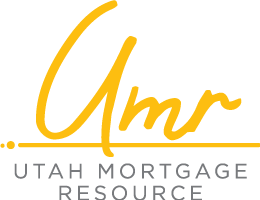There are a number of different Utah mortgage loan programs, each tailored to meet specific needs.
While for some people it may seem like a lot of information to take in, it really isn’t complicated – the options have actually narrowed down quite a bit since the real estate market crash, and quite a few shady loan programs have completely disappeared (think balloon payments, interest only, and stated income loans).
Let’s look at the most common situations potential borrowers are dealing with.
No down payment mortgage loan programs
Contrary to what some people believe, it is still possible to get into a home with no money down. This option is especially handy for people with limited savings, who would be better saving that money for a rainy day! The current Utah mortgage loan programs that offer 100% financing are VA loans and USDA loans.
In addition, Utah also has a few different down payment assistance programs for eligible borrowers.
Low-income families can apply to obtain city grants, used to cover down payment and closing costs in connection to the purchase of a primary residence. For most Utah cities, this amount is around $5,000 – see the Davis County, Salt Lake County, Utah County or Weber County grants. Grants can also be as high as $10,000 – see the Provo City Grant. Some don’t need to be repaid, others will be forgiven after a certain period of time, and others have a due on sale clause.
Other cities may also offer grants. If you don’t see them listed on my website, contact me for details.
Low downpayment mortgage loan programs
An FHA loan would require a downpayment of only 3.5% of your loan amount. However, if you don’t have significant credit issues, it might be wise to postpone your new home purchase until you have saved at least 5% downpayment, and are able to apply for a Conventional Loan. The main reason for doing this is the huge increase in the cost of the FHA mortgage insurance. Ask your Utah loan officer to explain the pros and cons of each loan program before making a decision.
Here’s a little secret: as a real estate investor, you can use an FHA loan to purchase a multi-unit property with only the minimum 3.5% downpayment. You will have occupy one of the units as your primary residence, but there is nothing stopping you from renting everything else out. Not a bad deal, considering a conventional loan on a multi-unit property would require a whopping 15-25% downpayment!
“Less than perfect credit score” mortgage loan programs
Depending on exactly what your credit issues are, FHA loans and VA loans will approve borrowers with as low as 580 credit scores.
Note that while Conventional mortgage loans are available to borrowers with credit scores as low as 620, you might find that an FHA loan is actually a better (cheaper) choice if you’re somewhere between 620-639, and have no significant downpayment available (10-20%).
You’ve got good credit/ Significant downpayment / Second home or investment property
If any of the above apply to your situation, you should probably get a Utah Conventional mortgage. The guidelines are stricter, but conventional loans reward financially responsible borrowers. Not to mention that you are very limited on government loan options when it comes to financing a property other than your primary residence (think exceptions on refinance only).
You want to purchase a home that needs some work, and you’re looking to finance the renovation costs
If this is the case, the Fannie Mae Renovation Loan Program is what you need to apply for. You will need at least a 620 credit score and a 5% down payment, but you can finance almost any renovation into the loan amount. Add a bathroom, upgrade the kitchen, or even put up a fence to secure Fido.
Two other great things about this particular loan program: you can use it to refinance your existing home, or even an investment property (purchase or refinance). How amazingly awesome is that?!?
Bottom line on Utah mortgage loan programs:
Whatever your situation, there is always a solution.
Sometimes there is a penalty waiting period for a past financial mistake. Other times it’s a matter of getting the loan program that you can get approved for, until you become eligible to refinance at better terms.
- Conventional loans have stricter guidelines, but are more flexible on the types of properties you can purchase.
- Government loan programs may have better interest rates, and lower credit requirements; on the downside, they are generally limited to primary residences, and come with funding fees and mortgage insurance.
For detailed information on a particular Utah mortgage loan program , check out the individual loan sections.
Questions are always welcomed in my inbox at [email protected]

